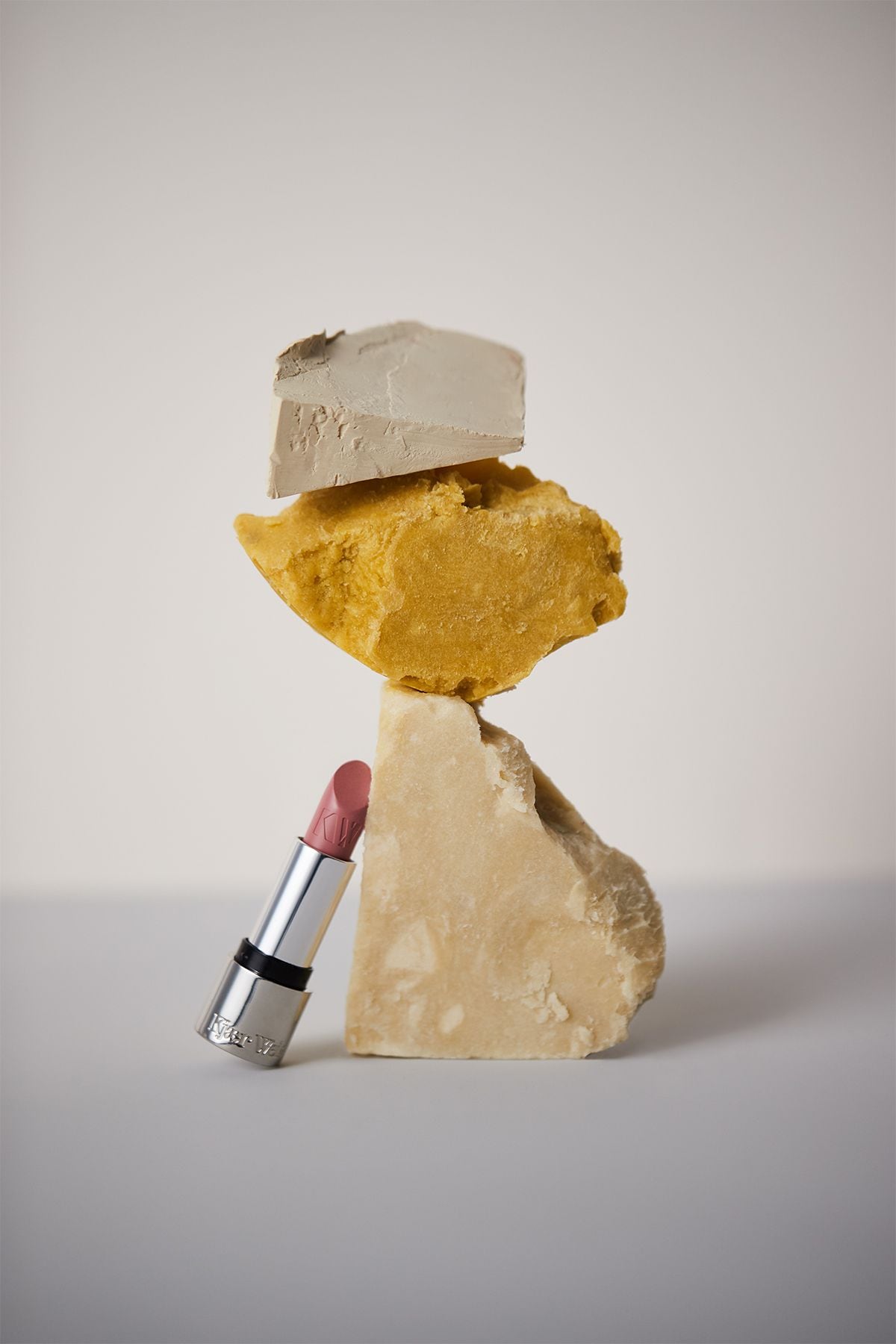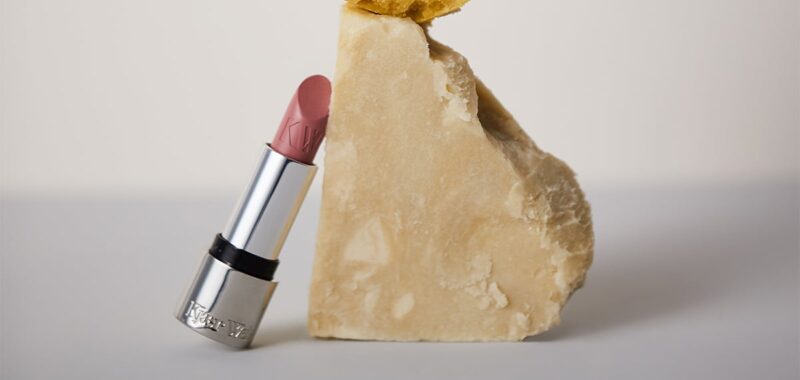
Kjaer Weis, a makeup brand made in Italy from organic olive oil, lavender and beeswax, is often described as one of the OGs of clean beauty. But that doesn’t sit well with its founder.
“‘Clean beauty’ didn’t exist when I launched in 2010 and it’s never been the sort of precise terminology that I have wanted to use,” said Kirsten Kjaer Weis, a New York-based makeup artist.
She says she finds the absence of a regulatory framework that governs or expressly defines “clean” problematic. For her refillable lipsticks and cream foundations she prefers the term “organic beauty,” pointing to her label’s certification by CCPB, a private company whose certifications are widely used in the industry, which verifies that her plant-based raw materials are grown without pesticides in accordance with the European Union’s regulations.
Kjaer Weis’ approach is becoming more common as clean beauty has moved from the fringes to the mainstream. Sephora, Ulta Beauty, Credo and others sell thousands of products from dozens of brands, each claiming to avoid long lists of no-go ingredients. Like any trend, clean beauty has its dissenters, who have taken to TikTok to question whether clean products are safer, or just another example of greenwashing. Regulators have picked up the question too, particularly in the EU, where false environmental and health claims come with increasingly stringent penalties.
The industry has settled into a few camps, which have come to an uneasy truce. There are brands like Kjaer Weis, which mostly follow clean beauty best practices but steer clear of the label; true anti-clean brands that proudly use chemicals and other additives on the “free from” lists; and clean beauty’s defenders, who are doubling down on the concept.
A Saturated Market
The latter group is still by far the biggest.
Sephora places a Clean at Sephora seal on 72 makeup SKUs from 35 brands “formulated without parabens, sulfates SLS and SLES, phthalates, mineral oils, formaldehyde, and more.” It recently convinced a judge to throw out a class-action lawsuit over whether it mislead customers to believe that these products are natural and not harmful.
A search on Ulta Beauty for makeup featuring “clean ingredients” returns 1,251 products from 104 brands that exclude 39 ingredient classes on its “Made Without List.” These products comprise more than one fifth of Ulta Beauty’s total colour cosmetics SKUs.
Perhaps no retailer has embraced clean more than Credo, the clean beauty retailer that launched a decade ago in New York and now has 15 stores across the US and by far the most comprehensive Dirty List banning or restricting 2,700 ingredients. It stocks 377 products from 47 brands that meet the criteria.
“In many ways, the expansion of the term has actually helped Credo stand out more,” said Boma Brown-West, Credo’s vice president of sustainability. “When ‘clean’ is just being used as a buzzword, it doesn’t really take that long for a consumer to look under the hood and realise that they’re not getting any real oomph there.”
For brands, the most pressing problem with the clean label is more that there’s too much competition in the category.
With no universal definition or regulation of what constitutes clean beauty in the US, the barriers to entry are low. Typically, “free from” lists are inspired by the EU’s cosmetics regulations, which bar more than 2,540 chemicals for use in cosmetics.
At Ulta Beauty for instance, that keyword search for “clean ingredients” turns up conventional clean products like Juice Beauty’s cream blush, which is formulated with certified organic purple carrots and champagne grape seed oil. But it also surfaces Kylie Cosmetics Lip Kits and Maybelline mascara, which exclude the chemicals on Ulta Beauty’s Made Without list, but use other artificial ingredients.
Clean Plus
Brands are coming up with their own, expansive definitions to assure customers they’re clean through and through.
Macrene Actives founder Macrene Alexiades published a manifesto on her skincare brand’s website stating that her products will not contain carcinogenic ingredients, will be fragrance free and will not use plastic packaging. Alexiades, a New York dermatologist with a Ph.D in genetics from Harvard University, backs up each of these claims with scientific journal citations, including her own review article on the estrogenic effects of parabens used as preservatives in a variety of cosmetics and their association with skin, breast and uterine cancer.
The line relaunched in 2020 with a hero product, the High Performance Tinted Moisturizer, made with 45 active ingredients sourced from medicinal botanicals and marine plants.
“I don’t mind the word clean … as long as people adopt the three pillars” outlined in her manifesto, she said.
Other brands have created a new category for themselves they say goes above and beyond merely clean.
TooD Beauty founder Sharareh Siadat describes her mission statement as “clean to the third power.” She said avoiding ingredients banned by European Union regulators, often the basis for “free from” lists, should be a starting point, not an end goal.
Launched in 2021, the New York-based brand features high-pigment cosmetics like biodegradable BioGlitter fabricated with eucalyptus cellulose and coloured mascara made from 99.3 percent natural ingredients.
“My hope and dream is finding like-minded individuals and inspiring the big multi-billion dollar corporations to say, ‘Hey, we as human beings deserve a safe body,’” Siadat said.
Highr Collective, a London-designed, LA-manufactured direct to consumer lipstick line made with organic plant butter and oils instead of the petroleum-derived polyethylene that typically gives lipsticks their grippiness uses similar verbiage in its tagline “This is clean beauty, but Highr.”
Launched in 2018 with six cheekily named shades including the brick red Chiltern and universal nude Chateau sold in recyclable aluminum tubes, Highr Collective is now B-Corp certified.
“There’s a big difference between having a purpose for why you formulate the way you formulate versus, ‘Okay, this retailer is going to give me this badge that says ‘Clean at Sephora’ if I don’t have this ingredient or I only have this ingredient of a certain percentage,’” said founder Molly Hart, an Estée Lauder and MAC alum.
Sign up to The Business of Beauty newsletter, your must-read source for the day’s most important beauty and wellness news and analysis.

